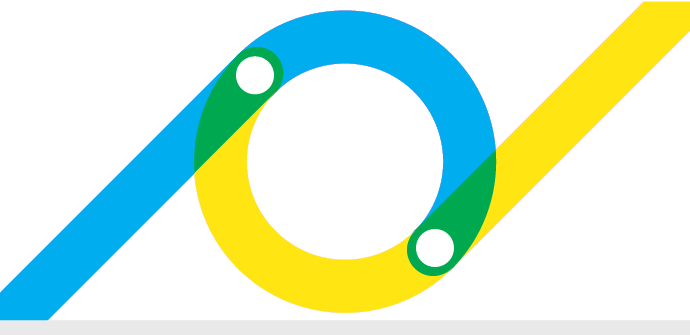The Société de transport de Montréal (STM) has released its 2024 Activity Report, which shows a strong 9% increase in ridership compared to 2023. The STM made a total of 314.6 million trips in 2024, or nearly 1.1 million trips per business day.
This uptick reflects shifting mobility patterns, notably the continued return of teleworkers to the office - either full-time or more frequently - as well as a resurgence in leisure activities and tourism, including major cultural and sporting events.
This positive outcome occurred despite ongoing financial challenges throughout 2024. Thanks to rigorous management and sustained efficiency efforts, the STM managed to maintain its service offering and even moved forward with initiatives aimed at enhancing the customer experience.
“In 2024, we did more with less, overcame obstacles and maintained an essential service. We stayed true to our mission and values, while working harder to better serve our customers and the people of Montreal. Funding remained a critical issue, but in the face of unprecedented uncertainty, we held firm. Thanks to tight management and targeted actions, we not only avoided any service cuts, but we also continued to improve the customer experience. However, asset maintenance remains a significant concern, with over $12.1 billion in unfunded investments. Without financial backing, essential projects such as station renovations, equipment replacement and universal accessibility upgrades remain at risk, threatening the reliability and safety of our network. This is something we want to avoid at all costs,” said STM general manager Marie-Claude Léonard.
Performance-driven operations
The STM ended the 2024 fiscal year without a deficit, thanks to $36 million in cost-optimization measures as part of a broader $100 million spending reduction plan. In fact, careful budget management across departments led to an additional $15 million in savings beyond the initial budget.
Commercial revenues also exceeded expectations by $14 million, helping the STM maintain budgetary balance while preserving customer service levels.
All these optimization strategies were implemented proactively, ahead of performance audit recommendations issued by Ministère des Transports et de la Mobilité durable (MTMD).
Maintaining and improving services
Despite reduced funding, the STM maintained its total service kilometers in 2024 and made concrete improvements to customer experience. Notable achievements included the redesign of the Grand Sud-Ouest bus network, which improved route coverage and frequency, and the launch of the first segment of the Henri-Bourassa bus rapid transit (BRT) line, easing congestion on this key corridor.
The STM also accelerated the rollout of bus preferential measures (BPMs), adding new reserved lanes and priority traffic signals to improve service reliability. Following the success of a pilot project allowing dogs and bicycles in the metro, the STM made both much-awaited policies permanent, updating its R-036 bylaw to reflect this.
Enhanced safety, security and frontline presence
With concerns on the rise, particularly in the metro system, the STM once again made safety and security a top priority. Targeted funding was allocated to deploy resources where they were needed most.
Key actions included the creation of a new safety ambassador team, the hiring of additional special constables, increased presence of maintenance staff and the launch of a text message reporting service for discreetly flagging non-urgent security issues.
This increased frontline presence has helped boost prevention, surveillance and response times. A public awareness campaign was also launched to highlight the role of frontline staff and build public trust.
Progress in universal accessibility
The STM continued advancing its metro accessibility program, installing new elevators at the D’Iberville, Outremont, and Place-Saint-Henri stations.
However, the lack of funding for both asset maintenance and accessibility now prevents the STM from launching new elevator construction projects. This threatens the STM’s goal of making 41 stations accessible by 2030, according to its 2030 Universal Accessibility Plan.
Infrastructure and modernization
The Blue Line extension project reached a key milestone with the approval of its business case, the awarding of major contracts and the start of mobilization work. The Bellechasse bus garage neared completion, and the first phase of waterproofing repairs at Berri-UQAM station was also completed.
The temporary closure of Saint-Michel station served as a stark reminder to the public of the importance of maintaining transit infrastructure. A potential issue was caught early through planned work, allowing for immediate intervention—an example of why consistent investment is essential for service safety, security and quality.
Complaints and network reliability
In 2024, the top concerns raised by customers were safety and security, bus frequency and punctuality, and cleanliness. A number of corrective actions have been initiated and will continue into 2025.
Despite a 9.2% increase in traffic, the total number of complaints fell by 6%, from 37,943 in 2023 to 35,539 in 2024. The rate of complaints per million trips decreased by 14%, a positive sign.
As for metro reliability, there were 13 service disruptions lasting over five minutes per million kilometres travelled—an improvement over 2023. Several factors beyond STM’s control—such as the growing number of incidents involving ill or injured passengers, rubber debris on the tracks and even water infiltration—contributed to service disruptions. By comparison, similar metro systems around the world averaged 37 incidents per million kilometres in 2022, a testament to the superior reliability of the Montreal metro.
2024 STM activity report (French only)
2023 COMET and IBBG international benchmarking summary report
-30-
medias@stm.info
